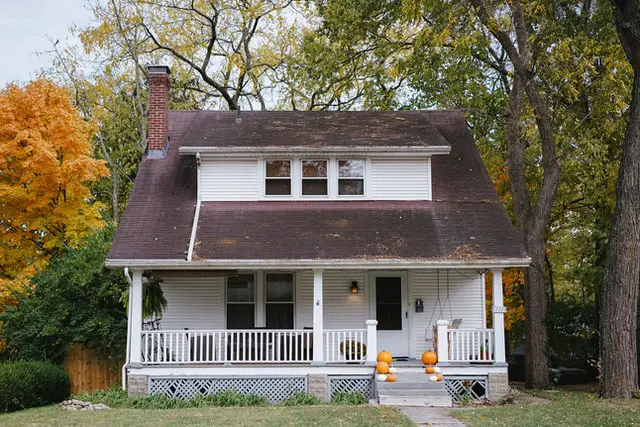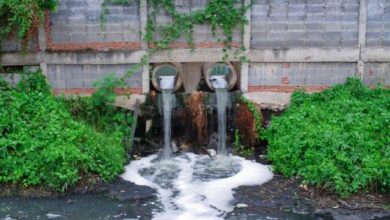8 Helpful Tips on Successfully Waterproofing Your Home

Waterproofing your home is a huge investment, but it’s one that can pay off in the long run. By taking the time to waterproof your home properly, you can protect it from water damage and keep your family safe from potential hazards. In this blog post, we will provide eight helpful tips on how to successfully waterproof your home. Follow these tips, and you can be sure that your home will be well protected against the elements!
1. Identify the areas of your home that are prone to water damage
To waterproof your home, you first need to identify the areas of your home that are most susceptible to water damage. This could include basement walls, crawl spaces, and any areas where there is a lot of moisture.
If you’re not sure where these problem areas are, you can always hire a professional inspector to help you out. Once you’ve identified the problem areas, you can then start to take steps to waterproof them.
2. Check your house’s foundation
When it comes to waterproofing your home, one of the most important things you can do is to check your house’s foundation. Look for cracks or gaps in the foundation and seal them up with caulk or another type of sealant. You should also make sure that there is no water pooling around your foundation. If there is, you may need to install a drainage system. Also, you can find foundation waterproofing services on offer from some waterproofing companies. That way, you can be sure that your foundation is properly waterproofed.
Another important thing to do when waterproofing your home is to check the gutters and downspouts. Make sure that they are free of debris and that they are draining properly. If you notice any problems, you should have them fixed as soon as possible.
3. Take a look at your windows and doors
For starters, you’ll want to take a look at your windows and doors. If you have any gaps or cracks, water can easily seep in and cause damage. Inspect the caulking and weather-stripping around your doors and windows, and repair or replace as necessary.
4. Install a gutter system to divert rainwater away from your home
One of the best ways to keep your home dry is to install a gutter system. This will help redirect rainwater away from your home and reduce the amount of moisture that seeps into your walls.
If you live in an area with a lot of rainfall, it is especially important to have a gutter system installed. Gutters can be made from a variety of materials, including aluminum, plastic, and even copper.
If you’re not sure which type of gutter system is right for your home, consult with a professional. They will be able to advise you on the best type of system to install based on the amount of rainfall in your area.
5. Make sure your drainage systems are working properly
If your home is prone to flooding, you’ll want to take extra care to make sure your drainage systems are working properly. This includes making sure your gutters and downspouts are clear of debris and that any French drains or other drainage systems are functioning correctly.
If you live in an area with a high water table, you may also want to install a sump pump to help keep your basement dry. Taking these precautions will help to ensure that your home is better able to withstand the effects of flooding.
6. Seal any cracks or holes in your basement
What many people don’t realize is that their basement can be the number one place where water enters their home. To waterproof your basement, it is important to inspect it regularly for any cracks or holes. If you do find any, seal them up with a waterproofing agent as soon as possible.
You can also use a dehumidifier to help keep the air in your basement dry and free of moisture. By doing this, you can prevent any mold or mildew from growing in your basement.
When sealing up your basement, it is important to use a high-quality waterproofing agent. This will ensure that your basement stays dry and free of water for many years to come. In addition, it is important to have your basement professionally waterproofed by a company that specializes in this type of work. This will ensure that your basement is properly sealed and that any leaks are fixed before they cause any damage to your home.
7. What to expect during and after the waterproofing process
In order to ensure that your home is properly waterproofed, it is important to know what to expect during and after the waterproofing process. During the process, a contractor will likely need to dig around the perimeter of your home in order to apply a sealant or membrane to the foundation. This can cause some disruption and mess, so it is important to be prepared for it.
After the process is completed, you should see a noticeable difference in the way your home handles water. There may still be some moisture present, but it should not be as bad as it was before. If you have any questions or concerns, be sure to contact your contractor so they can help you troubleshoot.
8. Regularly check for leaks and fix them as soon as possible
Of course, even with the best preventive measures, leaks can still happen. That’s why it’s important to check for them regularly and fix them as soon as possible. Waterproofing your home is an ongoing process that requires vigilance and regular maintenance. One small leak can lead to big problems down the road, so nip them in the bud as soon as you can.
In the end, waterproofing your home is a great way to protect your investment. By following these simple tips, you can ensure that your home is well-protected against the elements. Waterproofing your home is an important part of maintaining your property, so make sure to keep these helpful tips in mind!





